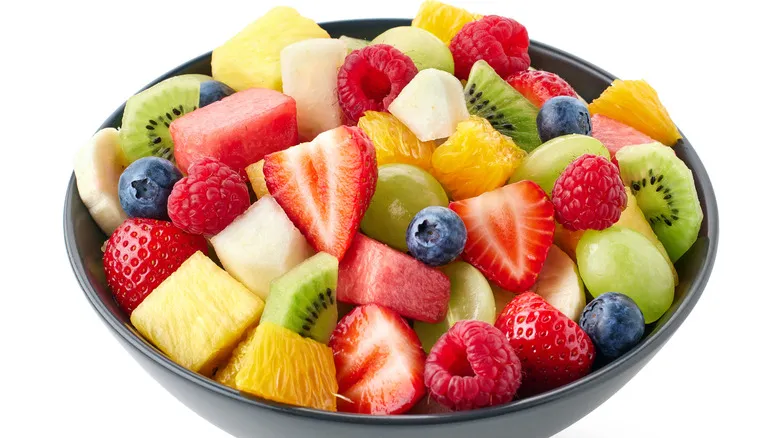Bananas
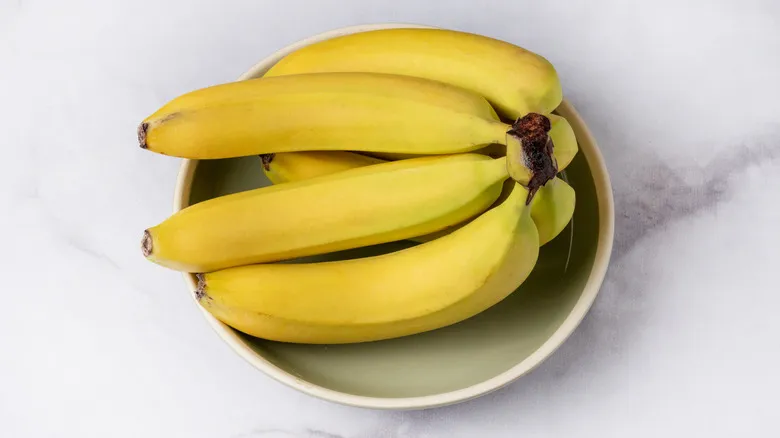
At the forefront of the brown and mushy category, sliced bananas can transform an entire fruit salad into an unappealing disaster, especially when paired with high-moisture fruits like berries or high-protein fruits such as guava, kiwi, and blackberries. The same caution applies to other starchy fruits, including plantains. The moisture from berries not only turns bananas into a gooey, slimy mess, but it also causes their colors to bleed, detracting from the salad's visual appeal.
Bananas (particularly when not fully ripe) have a higher starch content than most fruits. Combining these starchy fruits with high-protein ones can be problematic; the protein-rich fruits require acids for digestion, while bananas need an alkaline environment. Mixing the two can hinder proper digestion. Instead, pair bananas with crisp, low-moisture fruits like apples or grapes. If you choose to include bananas, be mindful of the fruit combinations you select.
Melons
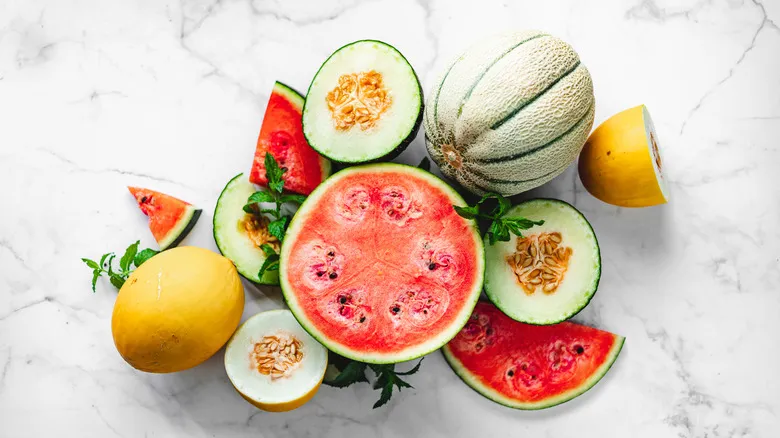
When it comes to fruits with high water content, melons—especially watermelon—are notorious. Watermelon consists of approximately 91% water, while cantaloupe is a close contender at 90%. This high moisture level is excellent for hydration but can lead to a soggy fruit salad, diluting the flavors of the other ingredients. Additionally, melons have a different digestion process compared to some other fruits, which may require more time to break down.
If you’re keen on including melons in your dish, it’s best to pair them with fruits that have lower moisture content. Options like grapes, pears, apples, or blueberries complement melons nicely. You can even create a simple three-ingredient fruit salad for the 4th of July, tossed in a light and tasty dressing.
Citrus
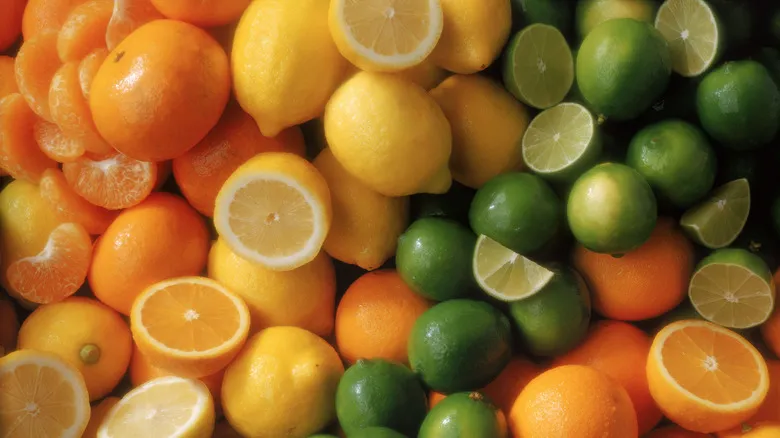
Citrus fruits—like oranges and grapefruits—can be challenging to incorporate into fruit salads. Many people enjoy adding orange segments, and a dash of lemon juice can help prevent banana slices from browning too quickly. However, the high acidity of these fruits can create issues, especially when mixed with sweeter, non-acidic fruits like bananas, which can quickly turn into a tangy mush.
If you love citrus, consider creating a fruit salad exclusively with citrus varieties, such as oranges, tangerines, and grapefruits, and perhaps include some pomegranate seeds for a delightful balance of tartness and sweetness. Another helpful tip is to add citrus fruits just before serving to reduce their impact on the other fruits.
Pineapple
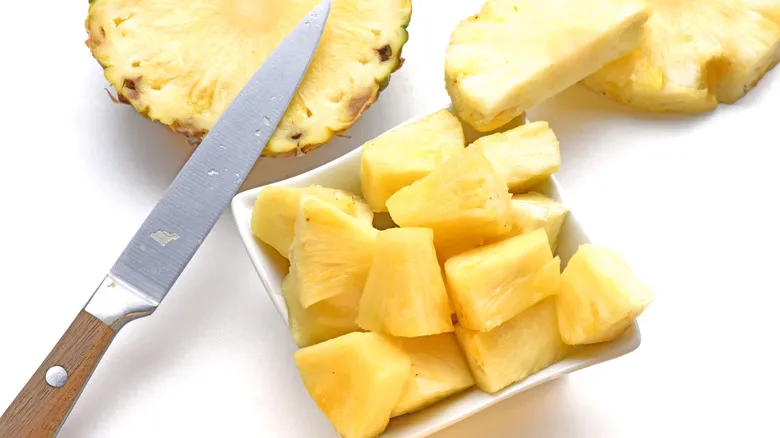
Have you ever enjoyed a pineapple only to end up with a sore mouth? This is likely due to bromelain, a digestive enzyme found in pineapples. Bromelain is known for its various health benefits, including anti-inflammatory effects and relief from sinus congestion. However, it is quite potent and can lead to sores on your hands and mouth if in contact for extended periods.
Pineapple is a common ingredient in fruit salads, and most people won't experience negative reactions. However, this enzyme can disrupt the balance of other fruits in the mix, such as berries, bananas, or kiwi, overpowering their flavors and making them mushy. Additionally, the texture can be an issue; a tough, fibrous pineapple contrasts unpleasantly with softer fruits. It’s best to enjoy pineapple on its own rather than in a salad.
Recommended
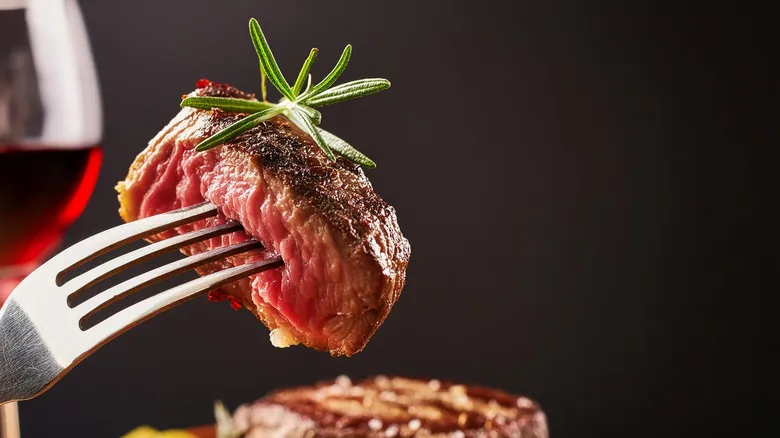
What Exactly Is Black And Blue Steak?
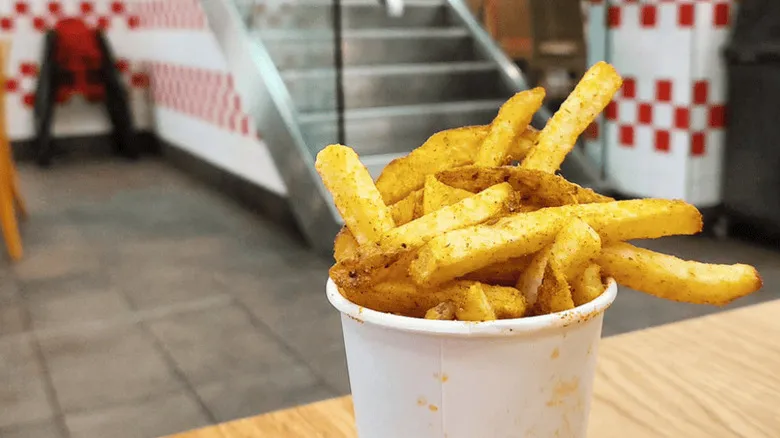
The Secret To Ordering Loaded Fries At Five Guys
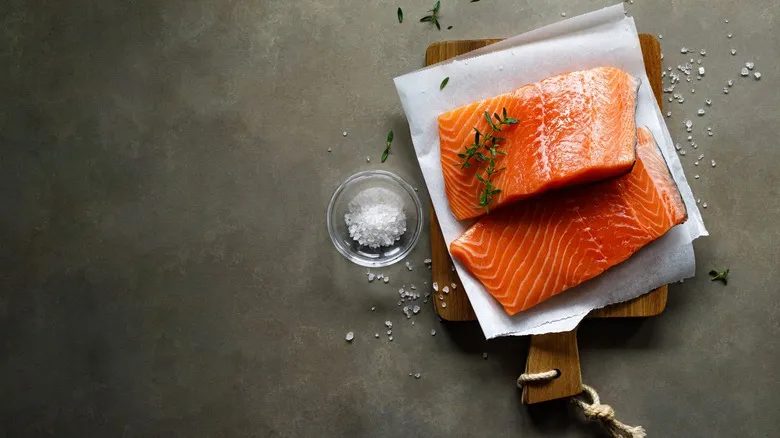
Effortlessly Add Flavor To Fish With One Store-Bought Ingredient
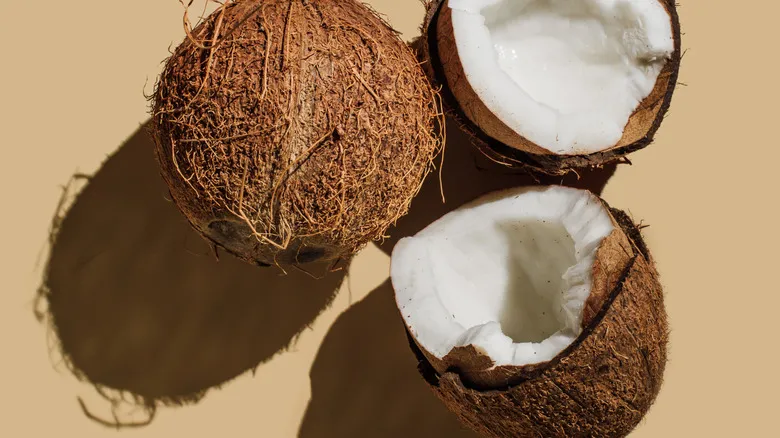
Your Freezer Is The Key To Cracking Open Coconuts
Next up

